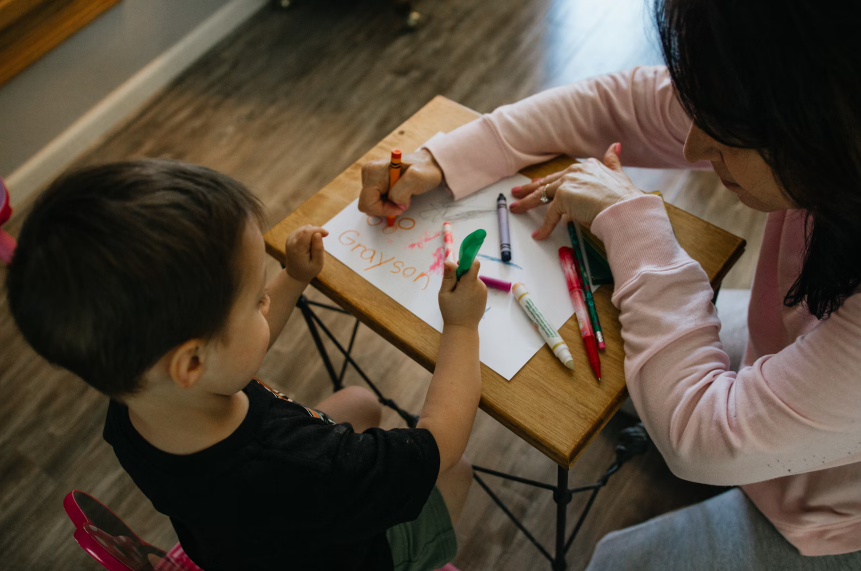
The foundation of a child’s education is crucial, and this begins long before they step into kindergarten. Preschool lays the groundwork for future academic and social success. It is not merely a place where children play all day; it is an essential stepping stone that nurtures young minds in remarkable ways. This blog post explores why preschool is important, shedding light on its multifaceted benefits and how it shapes children’s futures.
Cognitive Development
One of the primary advantages of preschool is its impact on cognitive development. Young children are like sponges, absorbing information from their surroundings. In a preschool setting, they are exposed to various learning activities designed to stimulate their cognitive abilities.
The structured environment of preschool encourages children to explore and learn new concepts. Activities such as puzzles, counting games, and storytelling enhance their problem-solving skills and vocabulary. Exposure to these activities at an early age sets the stage for more complex learning in the future.
Furthermore, preschool teachers are trained to identify and nurture each child’s unique learning style. This personalized approach ensures that no child is left behind and that each one receives the attention they need to thrive. The cognitive skills developed in preschool form the basis for future academic achievement.
Social Skills
Preschool is not just about academics; it is also a crucial period for developing social skills. Interacting with peers in a structured environment teaches children how to communicate, share, and cooperate. These social interactions are invaluable for their emotional and social development.
In preschool, children learn to take turns, listen to others, and express their feelings appropriately. These experiences are fundamental in building empathy and understanding, which are essential qualities for forming healthy relationships later in life. Learning to work in groups also prepares children for the collaborative nature of most educational settings.
Additionally, preschool provides a safe space for children to experience and manage emotions. They learn to handle frustration, disappointment, and excitement in a controlled environment, guided by nurturing teachers. This emotional regulation is crucial for their overall well-being and future success.
Emotional Development
The emotional development of a child is deeply intertwined with their early education experiences. Preschool provides a nurturing environment where children can explore their emotions and develop a healthy sense of self.
In preschool, children are encouraged to express their feelings and are taught how to manage them. This emotional literacy is essential for their mental health and well-being. Understanding and managing emotions helps children build resilience, a vital trait for overcoming challenges in life.
Preschool programs also help foster a sense of independence and self-confidence. Through various activities and routines, children learn to take care of themselves and make decisions. These small but significant achievements boost their self-esteem and prepare them for the greater independence required in kindergarten and beyond.
Language Skills
Language development is another critical aspect of preschool education. During these early years, children’s brains are highly receptive to language acquisition. Preschool provides a rich language environment that fosters vocabulary growth and communication skills.
Storytime, songs, and conversations with teachers and peers expose children to new words and sentence structures. This exposure enhances their listening and speaking abilities, which are crucial for reading and writing in the future. Children who attend preschool often have a more extensive vocabulary and better language skills than those who do not.
Furthermore, preschool encourages bilingualism or multilingualism in some cases. Exposure to different languages at an early age can enhance cognitive flexibility and cultural awareness. These language skills are valuable assets in our increasingly globalized world.
Motor Skills Development
Physical development is just as important as cognitive and emotional growth. Preschool programs include activities that promote fine and gross motor skills, helping children develop physical coordination and strength.
Fine motor skills are honed through activities such as drawing, cutting with scissors, and building with blocks. These tasks require precision and control, which are essential for writing and other academic tasks later on. Preschool provides ample opportunities for children to practice and refine these skills.
Gross motor skills are developed through play and physical activities. Running, jumping, climbing, and playing on playground equipment help children build strength and coordination. These activities also promote overall health and well-being, laying the foundation for an active lifestyle.
Routine and Structure
The transition from home to school can be challenging for young children. Preschool serves as a gentle introduction to the structured environment of formal education.
Preschool programs are designed with routines and schedules that provide a sense of security and predictability. Children learn to follow instructions, adhere to a timetable, and understand the concept of time. These skills are essential for a smooth transition to kindergarten and beyond.
The structured environment of preschool also teaches children the importance of rules and boundaries. They learn to respect authority and understand the consequences of their actions. This understanding of structure and discipline is crucial for their overall development and success in school.
Preparing for Kindergarten
One of the primary goals of preschool is to prepare children for the transition to kindergarten. The skills and experiences gained in preschool lay the foundation for a successful start in formal education.
In preschool, children develop the academic, social, and emotional skills needed for kindergarten. They learn to follow instructions, work independently, and collaborate with peers. These skills are essential for adapting to the kindergarten environment and thriving in school.
Preschool also helps children build a positive attitude toward learning. When children enjoy their preschool experience, they are more likely to approach kindergarten with enthusiasm and confidence. This positive attitude can set the tone for their entire educational journey.
Preschool is not just a preparatory stage for kindergarten; it is a crucial phase of a child’s development that lays the foundation for future success. From cognitive and social skills to emotional and physical development, preschool offers a comprehensive and enriching experience for young children. It fosters a love for learning, builds essential skills, and prepares children for the challenges and opportunities that lie ahead.

